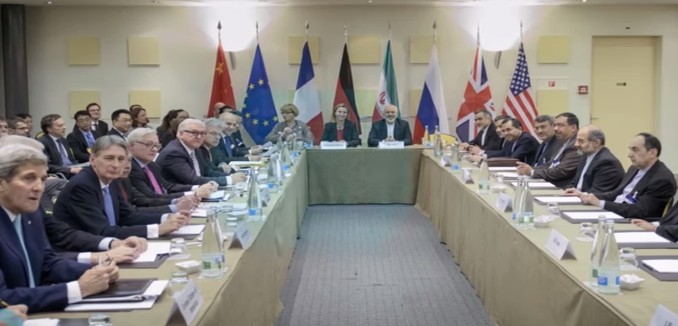Some U.S. government officials have privately acknowledged that a key provision of the nuclear deal with Iran violates existing federal law, James Rosen of Fox News reported today.
At issue is a passage tucked away in ancillary paperwork attached to the Joint Comprehensive Plan of Action, or JCPOA, as the Iran nuclear deal is formally known. Specifically, Section 5.1.2 of Annex II provides that in exchange for Iranian compliance with the terms of the deal, the U.S. “shall…license non-U.S. entities that are owned or controlled by a U.S. person to engage in activities with Iran that are consistent with this JCPOA.”
In short, this means that foreign subsidiaries of U.S. parent companies will, under certain conditions, be allowed to do business with Iran. The problem is that the Iran Threat Reduction and Syria Human Rights Act (ITRA), signed into law by President Obama in August 2012, was explicit in closing the so-called “foreign sub” loophole.
According to ITRA, foreign subsidiaries of American companies are forbidden from doing business with Iran until the President confirms that Iran has been removed from State Department’s list of state sponsors of terrorism and has “ceased the pursuit, acquisition, and development of weapons of mass destruction.” Iran is still on the terror sponsors list, as it has been since 1984. The Iran Nuclear Agreement Review Act, which passed the Senate 98-1 and was signed into law in May, also stipulated that Iran’s continued listing as a state sponsor of terror means that the requirements have not been met for Iran to receive the sanctions relief required by the JCPOA.
Since the nuclear deal is an executive agreement rather than a treaty, Rosen wrote, “legal analysts inside and outside of the Obama administration have concluded that the JCPOA is vulnerable to challenge in the courts, where federal case law had held that U.S. statutes trump executive agreements in force of law.”
Adam Szubin, the acting Undersecretary of the Treasury for Terrorism and Financial Intelligence, said in a speech last month that Iran’s presence on the terror list meant that American sanctions against Iran would “continue to be enforced….U.S. investment in Iran will be prohibited across the board.” But in a subsequent Senate hearing, Szubin suggested that conditions existed “to allow for certain categories of activity” for foreign companies.
State Department spokesman John Kirby argued that “Under the International Emergency Economic Powers Act, the president has broad authorities, which have been delegated to the secretary of the Treasury, to license activities under our various sanctions regimes, and the Iran sanctions program is no different.” But one administration lawyer told Rosen that there was no legal basis for using that law to reopen the foreign subsidiary loophole, calling it “Alice-in-Wonderland bootstrapping….[It is] the exact opposite of what the statute ordered.”
[Photo: wochit World / YouTube ]




